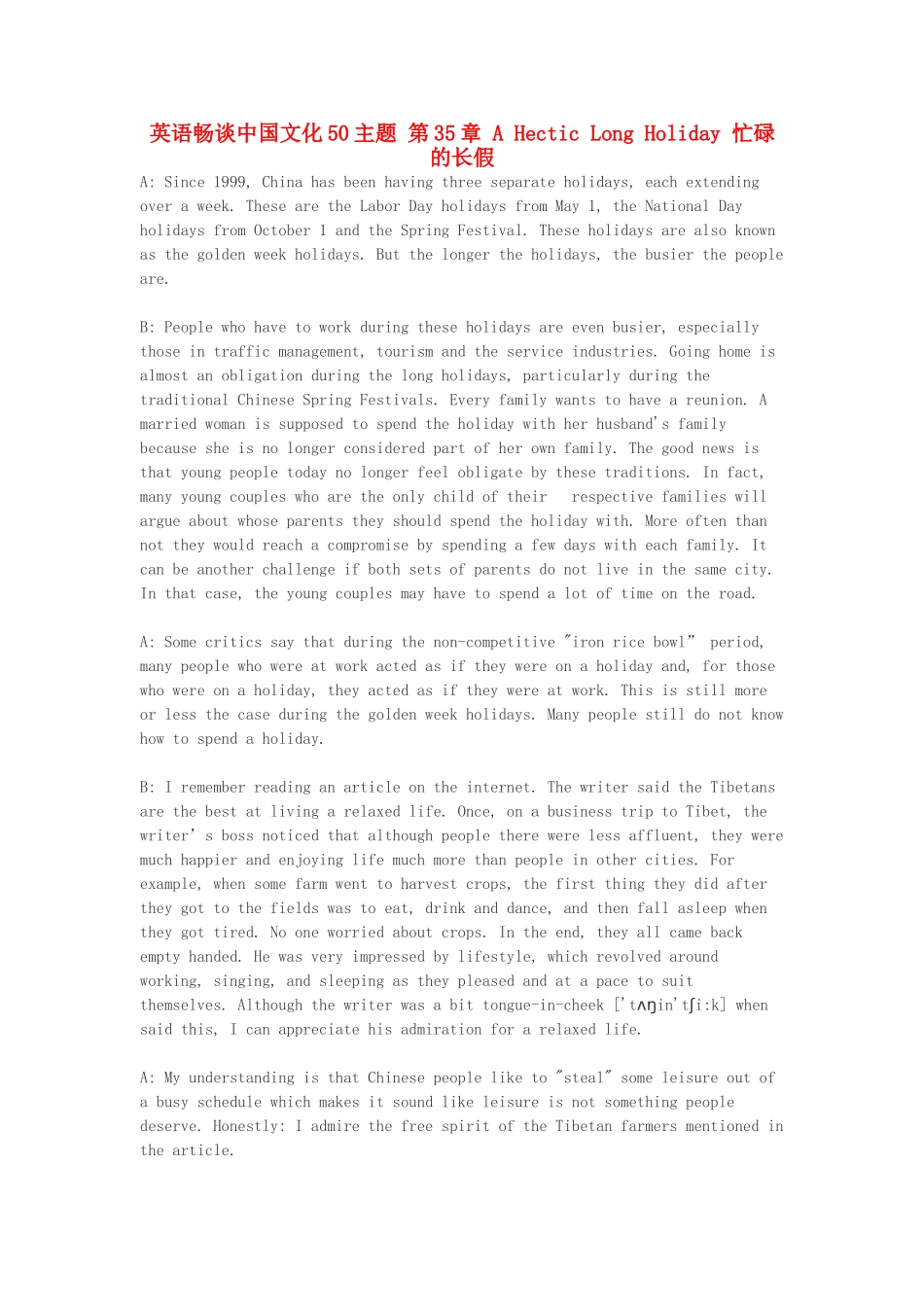英语畅谈中国文化 50 主题 第 35 章 A Hectic Long Holiday 忙碌的长假A: Since 1999, China has been having three separate holidays, each extending over a week. These are the Labor Day holidays from May 1, the National Day holidays from October 1 and the Spring Festival. These holidays are also known as the golden week holidays. But the longer the holidays, the busier the people are. B: People who have to work during these holidays are even busier, especially those in traffic management, tourism and the service industries. Going home is almost an obligation during the long holidays, particularly during the traditional Chinese Spring Festivals. Every family wants to have a reunion. A married woman is supposed to spend the holiday with her husband's family because she is no longer considered part of her own family. The good news is that young people today no longer feel obligate by these traditions. In fact, many young couples who are the only child of their respective families will argue about whose parents they should spend the holiday with. More often than not they would reach a compromise by spending a few days with each family. It can be another challenge if both sets of parents do not live in the same city. In that case, the young couples may have to spend a lot of time on the road. A: Some critics say that during the non-competitive "iron rice bowl” period, many people who were at work acted as if they were on a holiday and, for those who were on a holiday, they acted as if they were at work. This is still more or less the case during the golden week holidays. Many people still do not know how to spend a holiday. B: I remember reading an article on the internet. The writer said the Tibetans are the best at living a relaxed life. Once, on a business trip to Tibet, the writer’s boss noticed that although people there were less affluent, they were much happier and enjoying life much more than people in other cities. For example, when some farm went to harvest crops, the first thing they did after they got to the fields was to eat, drink and dance, and then fall asleep when they got tired. No one worried about crops. In the end, they all came back empty handed. He was very impressed by lifestyle, which revolved around working, singing, and sleeping as they pleased and at a pace to suit themselves. Although the writer was a bit tongue-in-cheek ['tʌ in'tŋʃi:k] when said this, I can appreciate his admiration for a relaxed life. A: My understanding is that Chinese people like to "steal" some leisure out of a busy schedule which makes it sound like leisure is not something people deserve. Honestly: I admire the free spirit of the Tibetan farmers mentioned in the article. B: Now that the Qinghai-Tibet Railway has opened to traffic, you can go to Tibet; enjoy a taste of their lifestyle.

